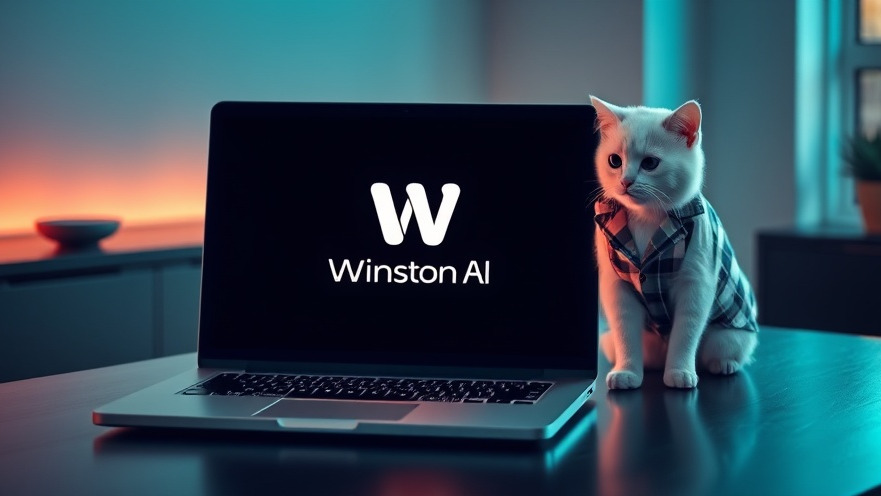
Winston AI Plagiarism Checker: A Dual Approach to Content Integrity
In an age where content is king, the need for originality has never been more critical. The Winston AI Plagiarism Checker is emerging as a necessary tool for writers, educators, and creatives alike. With claims that it scans an impressive 400 billion web pages and databases, Winston aims to be the go-to solution for ensuring text authenticity while also checking for AI-generated content.
Why Winston Stands Out in the Crowded Market
One significant advantage of Winston is its extensive coverage. By analyzing billions of sources, the tool significantly boosts the chances of detecting duplicate content, which is essential for maintaining credibility in any academic or professional setting. Moreover, with support for over 180 languages, this tool can cater to a diverse user base, covering multilingual content effectively.
Interactive Reports: Collaboration Made Easy
The platform's interactive reports are a key feature, allowing users to not only see flagged sections of text but also to manage citations and share reports seamlessly. In collaborative environments, this functionality becomes invaluable—clients and educators can engage with the data rather than receive vague results.
Security: A Top Priority
In times where data breaches are frequent, Winston emphasizes confidentiality by encrypting user content and allowing users to delete scanned documents. Not leveraging the content for algorithm training is a notable aspect, ensuring that users can trust the platform without fearing future implications.
The Challenges Ahead: Context and False Positives
However, no tool is without its limitations. Users should be cautious about false positives—common phrases may be flagged as plagiarized, creating unnecessary hurdles. Furthermore, the challenge of context sensitivity means users must discern when a phrase is flagged due to similarity versus legitimate infringement.
The Future Implications of Plagiarism Detection AI
As AI technologies like Winston advance, their role in assessing originality will grow more significant. This raises important discussions about the ethical implications of employing AI in educational and professional contexts. How do we balance technology's efficiency with the humanity of creativity? The dual check mechanism—detecting both plagiarism and AI-generated content—encourages a culture of transparency in content creation.
What This Means for Professionals in the Tech and Legal Spheres
The evolution of tools like Winston highlights the broader changes we're experiencing in society. For professionals in law, policy-making, and technology, the integration of AI in plagiarism detection is not just a trend, but a harbinger of new responsibilities and challenges. Understanding AI's ethical implications and its societal impacts can help professionals navigate an increasingly complex landscape.
Take Technological Responsibility With Your Content
As we engage with tools like Winston, it is essential to reflect on our responsibility for content integrity. Incorporating AI-driven solutions should inspire deeper thinking about ethical marketing and societal fairness. Embrace this technology with a critical eye—ensure that it enhances our creative processes while upholding our duty to originality.
 Add Row
Add Row  Add
Add 




Write A Comment